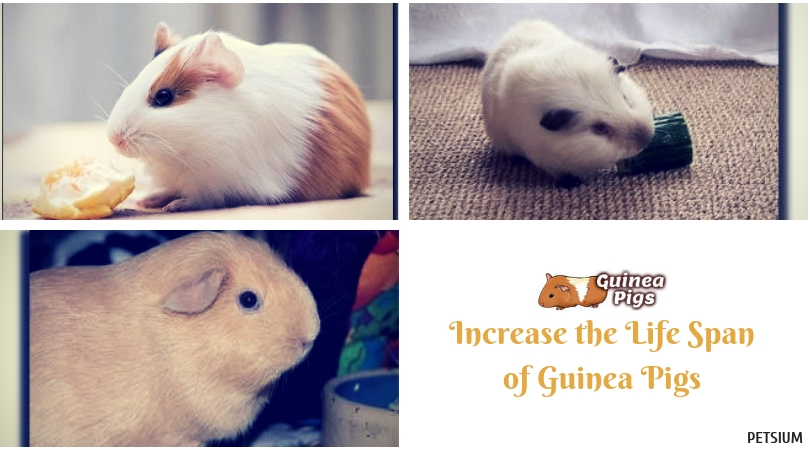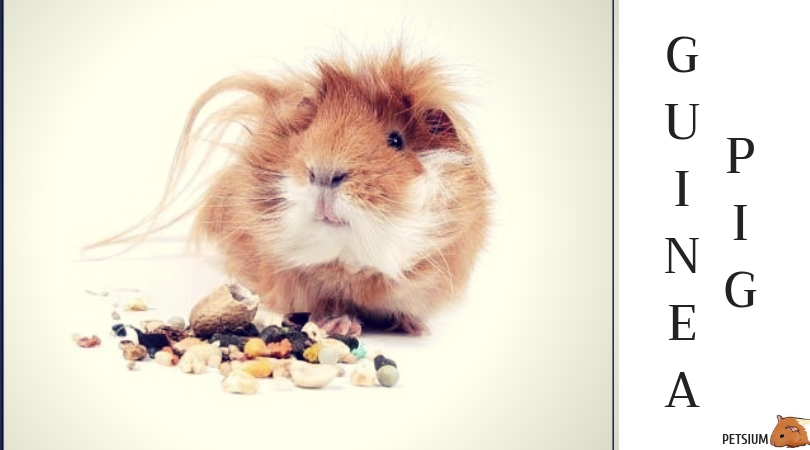On average, the life span of guinea pigs is between four and eight years. However, you have to keep in mind that, just like any living creature, its longevity greatly depends on how healthy and happy the cavy is. Showering it with proper attention and food will do wonders to keep your cavy alive for a long time.
Bad nutrition, heat stroke, infections, parasites and ring worm can also cause the premature death of your cavy. Although very rare, the longest recorded lifespan of a guinea pig is 15 years. However, as far as small house pets go, they have a relatively long life span.
Post Navigation
What Are They?
Also known as the cavy, a guinea pig belongs to the rodent family and is a popular household pet. Weighing between 700 and 1200 grams and measuring up to 25 centimeters in length, guinea pigs are known to thrive in groups of two or more. Their gentle demeanor and small size make them the perfect addition to any home. Cavies originated from South America and, as far as research shows, are domesticated descendants of a similar species and hence cannot be found in the wild.
How to Increase Their Life Span of Guinea Pig
There are several things you can do to increase the average life span of guinea pig. From ensuring it does not get too stressed to feeding it the right balance of nutrients and minerals, there are many things you can do to ensure your cavy will live a long and happy life.

Give It Sufficient Living Space
Animals need space to thrive and cavies are no different. You have to prepare and maintain a minimum of 10 square feet of living space for two cavies. Not only will sufficient space give them their own territory, it also gives them enough room to exercise. Exercise will prevent the animals from suffering obesity, gas buildup and excessive bloating. Some pet owners go the extra mile and offer entire rooms for them.
However, to simplify things, cages with solid wire mesh floors are a common choice and are perfectly acceptable. Be sure to line the cages with newspaper or wood shavings to prevent it from injuring itself. The more cavies you intend to raise, the larger the cage has to be. Enough space to roam about will discourage them from fighting and hurting each other.
Raise Them in Pairs
As social creatures, cavies do well living in groups of two or more. It is advisable to keep cavies of the same sex together. If you want to keep one of each, ensure at least one is spayed or neutered. A reason for this is because you do not want the female to become pregnant. Although breeding them is a common activity, you should keep in mind that at least one in five females will die from complications either during pregnancy, birth, or post-pregnancy. Living in pairs will also encourage exercise and play which helps with blood circulation and the prevention of obesity.
Practice Good Hygiene
If you do not regularly clean your guinea pig’s cage, you will be inviting infection and bacteria to flourish. Bumblefoot is a common infection contracted by these animals. Bumblefoot is an inflammatory reaction that affects the feet of rodents who live in cages that have not been cleaned for a significant amount of time. Because they are generally messy creatures, they tend to jump into their feces and urine, mixing them up with their bedding and food. Besides cleaning the cavy’s cage regularly, you can also opt to bathe your pet once every three months.
Depending on your pet, it will either love it or hate it. Either way, prepare a towel, guinea pig or rabbit shampoo, a hair dryer and a brush. Fill up a sink with warm water and gently hold your cavy under the gentle flow of running water. Avoid getting water onto its face or into its ears. After wetting its body, work the shampoo into its fur. Rinse it off once you have lathered its entire body. Wrap your cavy in the towel and absorb as much water as possible. Finish up by blow drying its fur and brushing it to work out the kinks and tangles. As an alternative, you can also use a washcloth and wipe it with warm water.

Be Sure to Avoid Sudden Temperature Changes
Guinea pigs are rather delicate creatures and do not do well adjusting to drastic temperature changes. They are also prone to heat and sun strokes so do not place your pet’s cage anywhere with direct sunlight. Rather, opt for somewhere with indirect sunlight or a bright location that gets some morning sun. You should also ensure that your pet’s space is draft free as cavies are prone to catching respiratory infections.
Also, ensure the area the cage is placed has a stable, low level of humidity and heat. Placing the cage in the laundry room or bathroom is a bad idea. They should be housed indoors as research has proven that indoor cavies tend to live longer than those that are housed outdoors.
Offer It Proper Nutrition
As a pet owner, you are responsible for the health of those under your care. It should be your main goal to ensure your pet gets sufficient nutrients to live a long and healthy life. Offering your pet proper nutrition is one of the most important steps you can take to ensure its life span of guinea pig increases. Fresh water and quality food are the backbones of a guinea pig good diet.
Cavies should be fed a diet rich in calcium, phosphorus, magnesium, potassium and vitamins A, C, D and E. As cavies are herbivores, feed them quality pellets, grass hay and fresh fruits and vegetables. Some great examples are leafy greens, carrots, celery and apples. Feed them more vegetables than fruits as the latter contains high levels of sugar which, when not controlled, can prove to be very unhealthy to guinea pigs.




